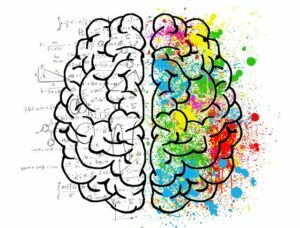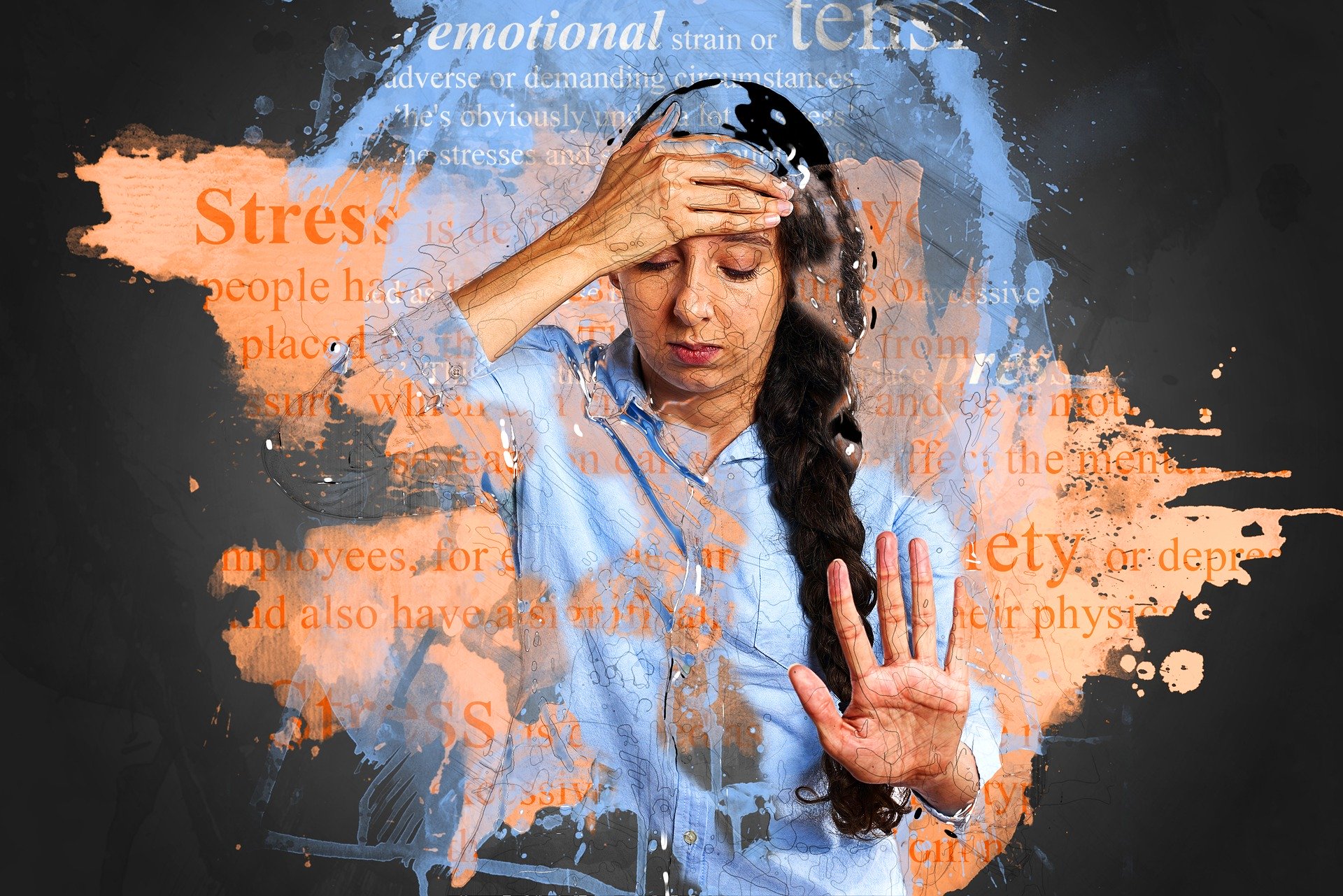Almost 18% of the American population—some 40 million Americans—suffer from anxiety and depression disorders.
Sufferers might experience generalized anxiety, panic disorder, social anxiety, phobias, or depressive disorders.
Unsurprisingly, the pharmaceutical community has designed medication to counteract depression and anxiety. However, these medications often have serious side-effects that lower people’s quality of life.
That is why researchers are constantly looking for new medications to offer relief from anxiety and depression with fewer side-effects.
Following CBD’s legalization, and as more research is being performed, CBDA has grabbed researchers’ interest. Several studies and clinical trials are underway to establish whether CBDA could be a helpful and successful treatment for anxiety and depression.
What is CBDA?
CBDA is found in the trichomes (resin glands) of the raw cannabis plants. If you cut a flower or a leaf off a hemp plant and eat it, you are eating CBDA. Many people choose to consume their CBDA by adding raw hemp flowers and leaves into their salads or dishes.
CBDA is often described as the precursor of CBD. Once the hemp flowers have been picked, they are processed through an extraction process that requires heat to produce CBD. The moment CBDA is heated, it turns into CBD. This process of heating CBDA is called the decarboxylation process.
Keeping CBDA in its original format while still processing it requires a specialized method called cryo-extraction. Cryo-extraction extracts CBDA without heating it, thus keeping it intact and stable.
Where to Buy CBDA Products Online
Before we get started, it’s important for us to mention that CBDA products are available for purchase online in the United States. There are a number of different variations of CBDA products available on the market, but our favorite choice is definitely CBDA oil tinctures. Fortunately, Fluxxlab not only sells the best CBDA oil, but we actually manufacture it ourselves. This goes for all FluxxLab products available on our website. We control the entire process, from laboratory research, manufacture, and sale. Be sure to check out our products on our online store for more information.
What Are Mood Disorders?
Out of the 40 million Americans suffering from anxiety and depression, 45% display symptoms from two or more additional disorders.
Anxiety and depression share some common symptoms such as irritability, sleep problems, and difficulty in concentration. Depression also displays low energy and chronic fatigue as well as feelings of sadness and negativity about life. Depressed people usually distance themselves from others and prefer isolation.
Anxiety presents itself by restlessness, fears and worries, and accelerated heart rates. Panic attacks are also frequent in anxiety disorders.
 What Are the Causes of Anxiety and Depression?
What Are the Causes of Anxiety and Depression?
Most people will suffer from short-term anxiety at various points in their lives, for example before an exam or a doctor’s appointment.
Most people will also suffer from short-term depression, for instance after a divorce or the death of a loved one.
However, problems occur when anxiety and depression become long-term issues that prevent people from leading happy and productive lives.
Anxiety, Depression, and Neurotransmitters
People often believe that anxiety and depression are simple chemical imbalances in the brain. In part, this is a misconception.
Our brain cells produce neurotransmitters. These trigger specific receptors. Sometimes, the brain cells produce too little or too many neurotransmitters. Other times, the receptors are either too insensitive or too sensitive to these neurotransmitters, thus causing imbalances.
However, it is unclear whether chemical imbalances are the cause or an effect of anxiety and depression disorders.
Furthermore, research suggests that many factors contribute to a disorder, including genetic predisposition, life events, medication, health problems, and chemical brain imbalances.
Finally, researchers are looking into neurogenesis as well. Specifically, they want to determine whether having fewer nerve cell connections is linked to anxiety and depression, as some studies indicate.
So, anxiety and depression are not a simple case of our body producing a neurotransmitter in too low or too high quantities. Neurotransmitters and their respective receptors are part of anxiety and depression disorders but treating a disorder is a question of balance and may be affected by several other factors, many of which are still unknown.
The Role of Serotonin
Even though neurotransmitters are not solely responsible for anxiety and depression, they do play a big part in our mood stability. The main neurotransmitters that the medical community has studied include acetylcholine, norepinephrine, dopamine, GABA, glutamate, and serotonin.
Serotonin is of particular interest to researchers. It is called the happy chemical because it helps regulate feelings of wellbeing and happiness. The scientific name for serotonin is 5-hydroxytryptamine or 5-HT. It is mainly found in the brain, bowels, and blood platelets.
Our bodies use serotonin to transmit messages between nerve cells. As the precursor for melatonin, it helps regulate the body’s sleep-wake cycles and the internal clock. And it is thought to play a role in regulating appetite, emotions, and motor, cognitive, and autonomic functions.
Importantly, serotonin is also closely linked to mood disorders. Low levels of serotonin, in particular, have been linked to depression.
How Can CBDA Help with Anxiety and Depression?
Available research has shown that CBDA attaches to the 5-HT1A serotonin receptor. Other studies have demonstrated that the activation of this receptor has anti-depressant and anxiolytic effects. Therefore, researchers have theorized that CBDA may affect serotonin levels in the body, therefore helping regulate mood disorders.
CBDA appears to be working similarly to antidepressant medications based on Selective Serotonin Reuptake Inhibitors (SSRI). These medications make serotonin flow longer into the brain before it is absorbed by neurons. The more serotonin is in the body, the better people’s mood is.
The difference between DDRI and CBDA is that SSRI’s side-effects include nausea, drowsiness, dizziness, and restlessness, while CBDA has relatively few and minor side-effects.
What Does Research Show About CBDA?
The available research indicates that CBDA may be effective in treating depression and anxiety.
A 2017 study showed that CBDA was effective in treating depression in rat models while a study in 2018 showed similar results in two genetic animal models of depression.
However, it is still too early to reach conclusive results, let alone determine the necessary dosage for each person and disorder. Even so, the initial findings are encouraging.
CBDA for Anxiety and Depression
Several studies have indicated that CBD may be an effective treatment for anxiety and depression disorders someday. CBDA, however, may be even better than CBD because of its better affinity and bioavailability.
Higher Affinity and Better Bioavailability
CBDA appears to have a better affinity for the 5-HT1A receptor, up to 100 times higher than CBD, as shown by the 2017 study on rats.
That means that patients might need up to 100 times smaller CBDA quantities to achieve the same results as CBD.
Initial research also suggests that CBDA is more water-soluble than CBD. Since the human body is water-based, this makes CBDA better absorbed by our body than fat-soluble CBD.
Such increased affinity makes CBDA more bioavailable to the body, therefore more effective.
Why Does Affinity Matter?
Higher affinity means that lower quantities of CBDA are necessary. This also implies fewer side-effects, since most side-effects from CBD and CBDA consumption are usually due to high doses.
Higher affinity is also better for your wallet: people need to buy less CBDA to reach the same effect.
Also, many people’s stomachs may be unable to handle large doses of CBD. A significantly lower dose of CBDA may have the same effect while giving the body time to absorb it properly.
CBD Works with CBDA
Research has demonstrated the important effect of the so-called entourage effect: CBD is more effective and potent when consumed along with CBDA.
The World Is Moving Toward CBDA
GW Pharmaceutical is the British pharmaceutical company producing Epidiolex, the only FDA-approved CBD medication. The company has filed a patent on CBDA as a possible treatment for psychotic disorders. This implies that they have found promising results in their trials regarding the effectiveness of CBDA in brain imbalances.
A lot of research is required to draw definitive conclusions regarding the use of CBDA for depression and anxiety. We need to determine the mechanisms involved, gain a better understanding of how CBDA interacts with serotonin and the 5-HT1A receptor, and determine the right CBDA dosage.
However, now that more clinical trials are underway on CBD, it is also expected that more light will be cast on CBDA and its promising potential.


I have been using CBD for depression for about a year, it has helped my mood swings a lot and given me the ability to face social interactions with a more open demeanor!